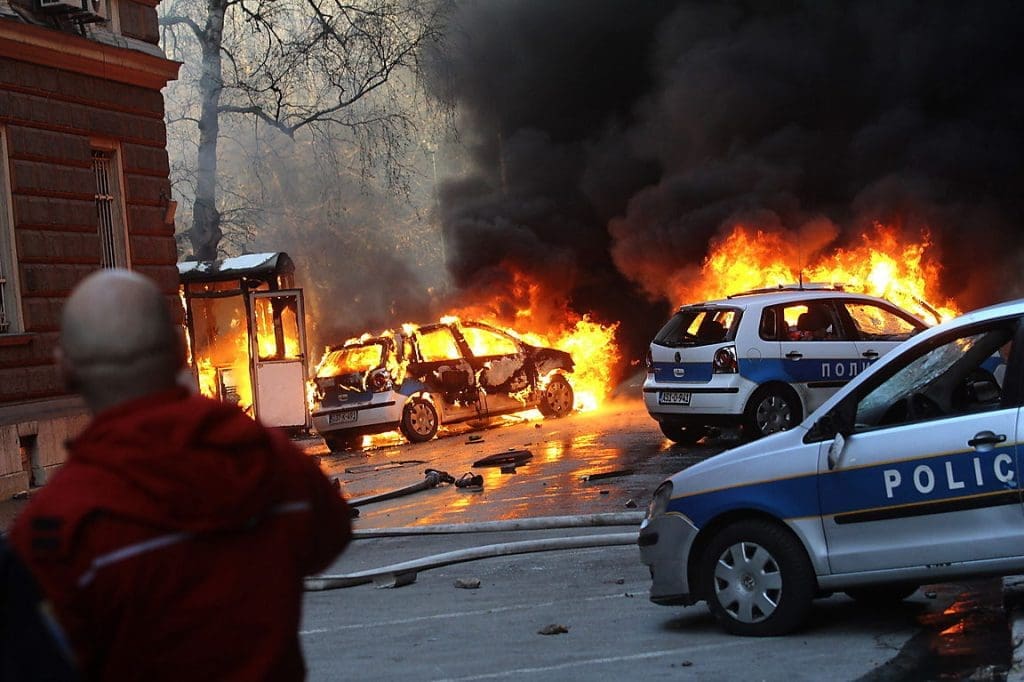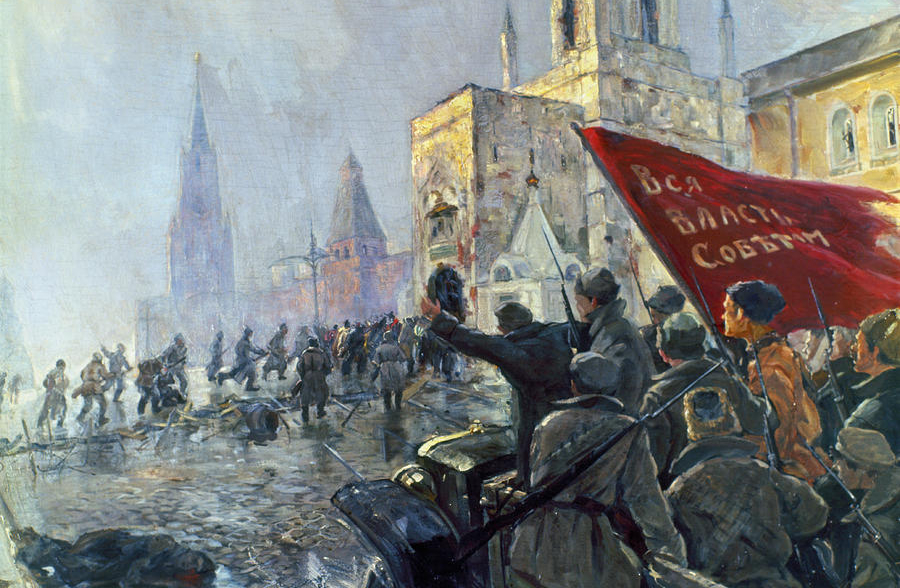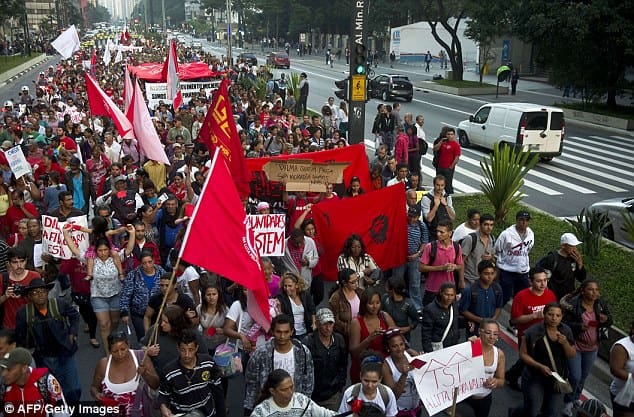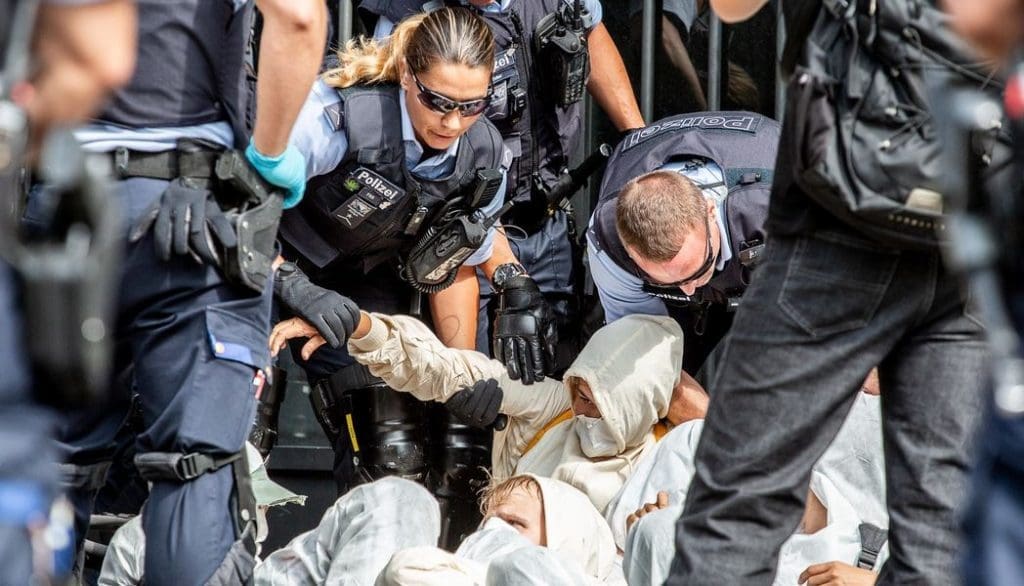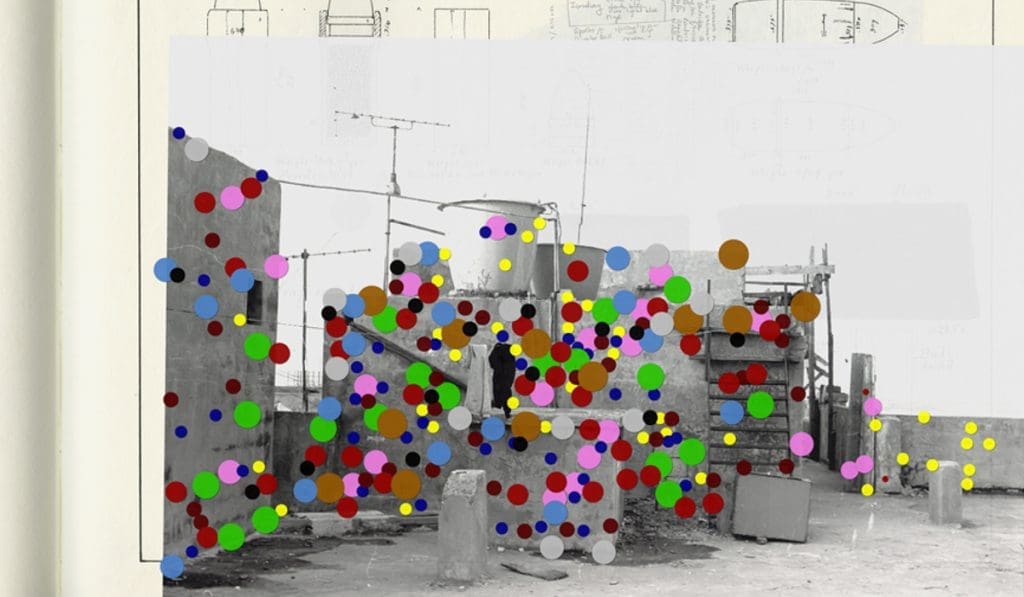By Faruk Šehić, posted on Lupiga.com
9 February 2014 (original post in SCB)
English translation posted on the Bosnia-Herzegovina Protest Files
12 February 2014 (original post in English)
Fuck Them, They Make Three and a Half Thousand a Month
What actually happened that Friday 7th of February, what wild force was it that had awoken in the people and taken control of the streets surrounding the buildings of the Presidency of BiH and the Canton of Sarajevo? The day before, it had begun in front of the building of the cantonal government during one in a long line of workers’ protests. Amateur footage on the internet documented police brutality and police ineptitude to deal with the situation which quickly escalated. It was to be expected that Friday would be even worse and with even more tension than that first day when the uprising began spreading through the streets of Tuzla. Around noon on the Friday, the building of the cantonal government in Tuzla was set ablaze. After I saw that on state TV, I headed toward city centre.
I live a few minutes’ walk from the building of the municipality Centar / the Canton of Sarajevo. Already at the crossroads near Ali Pasha’s Mosque the scene was chaotic. Lots of people going every which way. The traffic had stopped. Near Koševski Potok next to the cantonal building, a light, thin smoke was spreading. I walked along the stream to the tram stop at Skenderija. The kiosk at the stop was smashed, the glass roof of the tram stop strewn everywhere, as white as snow. Across the river Miljacka, people stood and watched. In front of the cantonal building, a few thousand people had gathered. The door of the main entrance was burning. The genie called rebellion was out of the bottle and there was no controlling it.
Police with helmets and plexiglass shields had withdrawn to Reisa Džemaludina Čauševića Street which connects Obala Kulina Bana with Titova Street. They formed a line in front of the side entrance of the cantonal building, next to the park behind the building of the Presidency. That street saw a proper battle. The protesters attacked in waves, throwing rocks and debris at the line of police. From time to time, the police would counter-attack and people would run away to Ajfelov Bridge or along Obala Kulina Bana by the Kriterion cinema. But then the protesters would regroup and force the police back. Smoke was billowing from every side of the cantonal building. One car was set on fire and pushed down into Koševski Potok. It wasn’t clear what precisely was on fire until flames appeared in the windows facing Koševski Potok. They were spreading throughout the interior of the building. Papers and documents from the municipality Centar were flying everywhere. A constant street battle was raging in the Reisa Džemaludina Čauševića Street. I saw young men carrying shields and wearing helmets they had taken from the police. I saw injured protesters. They were young, teenagers, football fans in sweatshirts, but there were also older people. It seemed that many of them knew each other and it was evident that they had a fair amount of experience with fighting the police. I saw a guy with a lacquered wooden mace headed toward the line of police. I saw girls bringing water to those on the front line. There was a certain inner order to that chaos. Instincts that had suddenly awoken in people, showing their war paint, acting as you might see on a battle field.
I stood and watched the building of the Canton of Sarajevo burn. I did not throw rocks, I did not set things on fire, I did not even swear at the police, the authorities, the state. I was mute and I felt a heat inside of me, filling me up, creeping from my stomach to my chest. I would be lying if I said that watching the flames lick those walls didn’t fill me with schadenfreude. I wasn’t doing anything, but it was as if what others were doing was a consequence of my own wish for something out of the ordinary. I knew that feeling from the war, except I was better with a firearm than now as a passive onlooker standing in the middle of the street, surrounded by chaos.
At the same time, I could hear noises from street battles around the Presidency. Official cars were in flames in nearby streets. The tram stop across from the Presidency was smashed, the kiosk broken into, but someone had closed the gap with a fridge with beverages. Hundreds of people stood on the wall of the park behind the tram station watching the surge on the entrance of the Presidency. No one was objecting, no one was doing anything against the protesters. I talked to elderly citizens at the crossroads near Radnik cinema. They said the attack on the Presidency brought back memories from the first days of the war when special forces from Niš had been stopped and defeated at Skenderija in May 1992, when they came to try to take the Presidency, the symbol of the then very recently internationally recognised Republic of BiH. At one point, as a group of protesters rushed toward the wooden door of the Presidency, I felt a bit sick. Someone on the other side of the door was desperately fighting, pouring water on the protesters who were trying to break the door down using a beverage fridge from a nearby kiosk as a battering ram. It was a fight to the death and no one would concede defeat. Later, when I talked to one of the guys and told him I felt sorry for the people inside, he said, ‘Fuck them, they make three and a half thousand a month.’ And with that, the discussion was closed.
There was no police at the Presidency and everyone thought it was odd that it wasn’t better protected. Apparently, the police had withdrawn to Odobašina Street to wait for reinforcements. An acquaintance of mine told me he thought that Dodik had payed to make the unrest happen, but conspiracy theories are not my thing. The line of insanity had been crossed and there was no way back. Night was falling. Traffic and street lights weren’t working. The city centre was illuminated only by the flames from the cantonal building. In just a few hours this part of town had been transformed into a battle field. The streets were full of strewn things, rocks, papers, shattered wood. Offices were burning on both sides of the entrance to the Presidency. Later we would learn that the historical archives had been set on fire. Car alarms were wailing and from time to time a loud blast would sound. As the protesters had no leaders, we knew that nightfall would bring an end to the battles and unrest that had raged for hours. The wild, unleashed force was roaming the streets of Sarajevo. It was a hypnotic anarchy in its purest form.
Walking along the street behind the BBI shopping centre, we saw about ten armoured police vans arriving. Behind them special forces were preparing their equipment, putting face masks on. The time of anarchy and Sarajevo’s “Paris commune” had come to an end. Later, plain-clothes police would beat passive onlookers near the monument to the murdered children of the siege of Sarajevo. The brutal crackdown by the police would only take place shrouded in darkness.
For a few hours on that Friday the 7th of February, the centre of Sarajevo knew no state authority. Had the protesters had five people to lead them it would have become obvious that they could have easily staged a coup. Which speaks both of the incompetence of the state which isn’t one because the Dayton Agreement makes it impossible, and of the incompetence of the ruling elites whose social obliviousness and arrogance towards their citizens led to the civic rebellion in Tuzla and then in other cities of BiH. Young people who have had their future and their right to a normal life stolen by rich and flabby politicians directed their wrath towards the institutions where our modern Pharaohs reside. That’s why the buildings had to burn. That’s why the cars had to burn. That’s why the kiosks and the tram stops were smashed. It wasn’t hooligans, it was the collective conscience of generations of young people whose lives were fucked up by rampant ruling elites before they had even properly begun.
Hopelessness will always result in a destructive force which no one can grasp nor predict. People from the margins, from the poor Sarajevan suburbs, people from the ghetto who had nothing to lose, but many others as well. The true hooligans are the haughty politicians, the beasts in suits, the crooks and criminals. They demolished the public institutions, torched and destroyed everything in their paths. They’ve been doing this for twenty years and no one has been able to reason with them and stop them. The protesters’ last resort was to run amok. Ceaușescu didn’t believe he would end up in the dustbin of history, yet he died like a dog. For if we have no bread, we can always eat cake, unlike the crap they’ve been serving us daily for the past twenty years. No one can predict or know when another Friday might happen, when the accumulated wrath might again explode on the streets of Sarajevo and what tragic consequences it might have. But the responsibility will be solely the unfeeling ruling elites’.
With thanks to the author for sharing.

